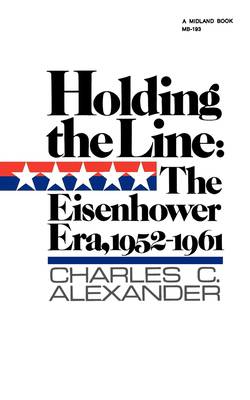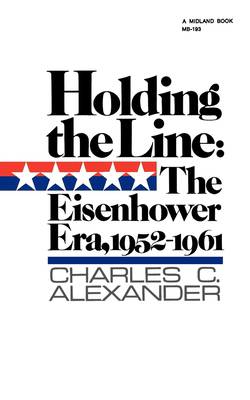
- Afhalen na 1 uur in een winkel met voorraad
- Gratis thuislevering in België vanaf € 30
- Ruim aanbod met 7 miljoen producten
- Afhalen na 1 uur in een winkel met voorraad
- Gratis thuislevering in België vanaf € 30
- Ruim aanbod met 7 miljoen producten
Omschrijving
Alexander sees the characteristic feature of the Eisenhower era as an effort to "hold the line"--against Communism, against big government, against intellectual challenge, against disruptive social change. The period 1952-1961 is examined in trenchant detail by the author, who focuses on domestic politics and foreign policy but also examines economic, social, intellectual, and cultural aspects of the period. He scrutinizes such features of the fifties as McCarthyism, the Korean conflict, Dulles's system of global alliances, the early involvement in Vietnam, the economic boom, the appearance of giant conglomerates, the emergence of Black protest, the gathering crisis of the cities, and the impact of the mass media on popular culture. This book is lively enough for general readers and students of American history since the Second World War, yet probing and scholarly enough to interest specialists.
Specificaties
Betrokkenen
- Auteur(s):
- Uitgeverij:
Inhoud
- Aantal bladzijden:
- 326
- Taal:
- Engels
- Reeks:
Eigenschappen
- Productcode (EAN):
- 9780253201935
- Verschijningsdatum:
- 22/09/1976
- Uitvoering:
- Paperback
- Formaat:
- Trade paperback (VS)
- Afmetingen:
- 127 mm x 203 mm
- Gewicht:
- 376 g

Alleen bij Standaard Boekhandel
Beoordelingen
We publiceren alleen reviews die voldoen aan de voorwaarden voor reviews. Bekijk onze voorwaarden voor reviews.











